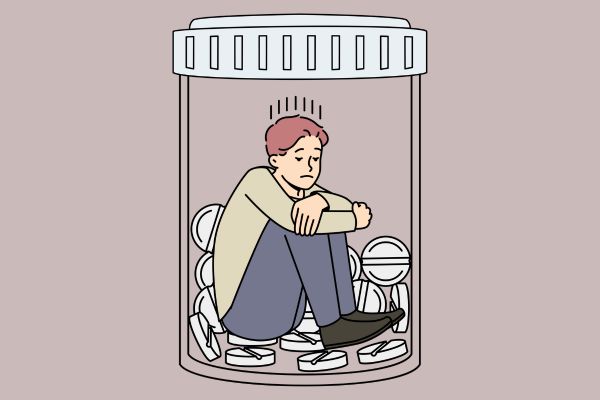What is voluntary rehabilitation in families and communities? What are the responsibilities of the person undergoing voluntary rehabilitation in families and communities in Vietnam?
What is Voluntary rehabilitation in families and communities?
Based on Article 30 of the Law on Prevention and Control of Narcotic Substances 2021 as stipulated:
Voluntary rehabilitation in families and communities
1. Voluntary rehabilitation in families and communities is when the drug addict engages in voluntary rehabilitation in families and communities with professional support from organizations or individuals providing rehabilitation services, with the cooperation and assistance of family and the community, and under the management of the commune-level People's Committee.
Voluntary rehabilitation in families and communities involves the drug addict engaging in voluntary rehabilitation at their home, with professional support from organizations or individuals providing rehabilitation services, with the cooperation and assistance of their family and the community, and under the management of the commune-level People's Committee.

What is voluntary rehabilitation in families and communities? What are the responsibilities of the person undergoing voluntary rehabilitation in families and communities in Vietnam?
What are the responsibilities of the person undergoing voluntary rehabilitation in families and communities in Vietnam?
Based on Clause 4, Article 30 of the Law on Prevention and Control of Narcotic Substances 2021 as stipulated:
Voluntary rehabilitation in families and communities
...
2. The duration of voluntary rehabilitation in families and communities ranges from 6 months to 12 months.
3. A person undergoing voluntary rehabilitation in families and communities who completes at least three stages as specified in points a, b, and c of Clause 1, Article 29 of this Law will be supported with funding.
4. A person undergoing voluntary rehabilitation in families and communities shall have the following responsibilities:
a) Comply fully and accurately with all regulations on voluntary rehabilitation and adhere to the guidelines of the professional agencies;
b) Pay the costs associated with rehabilitation as per regulations.
5. The Chairman of the commune-level People's Committee shall have the following responsibilities:
a) Accept registrations for voluntary rehabilitation in families and communities;
b) Guide and manage the persons undergoing voluntary rehabilitation in families and communities;
c) Issue a certificate of completion for voluntary rehabilitation in families and communities.
6. The Chairman of the district-level People's Committee shall have the following responsibilities:
a) Assign tasks to public service providers within their jurisdiction to provide voluntary rehabilitation services at home and in the community;
b) Accept and announce the list of organizations, individuals qualified to provide voluntary rehabilitation services at home and in the community;
c) Notify the commune-level People's Committees of the list of organizations and individuals providing voluntary rehabilitation services at home and in the community;
d) Allocate funding to support voluntary rehabilitation activities at home and in the community;
dd) Direct, guide, and supervise voluntary rehabilitation activities at home and in the community.
7. rehabilitation centers, organizations, and individuals qualified to provide one or more rehabilitation activities under the rehabilitation process specified in Clause 1, Article 29 of this Law shall provide voluntary rehabilitation services at home and in the community and have the following responsibilities:
a) Accept and organize the provision of voluntary rehabilitation services at home and in the community;
b) Strictly follow the professional processes and procedures as regulated by the competent authorities;
c) Within 5 working days from the day the person undergoing rehabilitation uses the service, or unilaterally terminates the use of the service, or completes the service, must notify the commune-level People's Committee where the person registered for voluntary rehabilitation in families and communities.
Thus, a person undergoing voluntary rehabilitation in families and communities has the following responsibilities:
- Comply fully and accurately with all regulations on voluntary rehabilitation and adhere to the guidelines of the professional agencies;
- Pay the costs associated with rehabilitation as per regulations.
What are licensing procedures for voluntary rehabilitation activities in provinces in Vietnam?
Based on Subsection 1, Section A of the Administrative Procedures promulgated under Decision 470/QD-LDTBXH 2022, the process for issuing licenses for voluntary rehabilitation activities at the provincial level is as follows:
Step 1: Submit Application
The voluntary rehabilitation facility shall submit directly, by post, or electronically 01 set of documents as specified in Clause 1, Article 11 of Decree 116/2021/ND-CP to the Department of Labor, War Invalids and Social Affairs.
In the case of electronic submission, the rehabilitation facility is responsible for keeping all original documents and is accountable before the law for the accuracy and truthfulness of the documents.
Step 2: Receive Application
The Department of Labor, War Invalids and Social Affairs is responsible for receiving applications during working hours. If the application is incomplete or insufficient, they must immediately provide a guide slip for supplementation to the applicant.
Step 3: Organize Assessment
The Director of the Department of Labor, War Invalids and Social Affairs is responsible for organizing the assessment of the application and evaluating the conditions for licensing as stipulated in Article 9, Clause 1, Article 11 of Decree 116/2021/ND-CP.
Step 4: Decide to Grant or Deny License
Within 15 working days from the receipt of a complete and valid application, the Director of the Department of Labor, War Invalids and Social Affairs must decide to grant the license for rehabilitation activities. If the license is not granted, they must provide a written response to the applicant, stating the reasons clearly.
LawNet